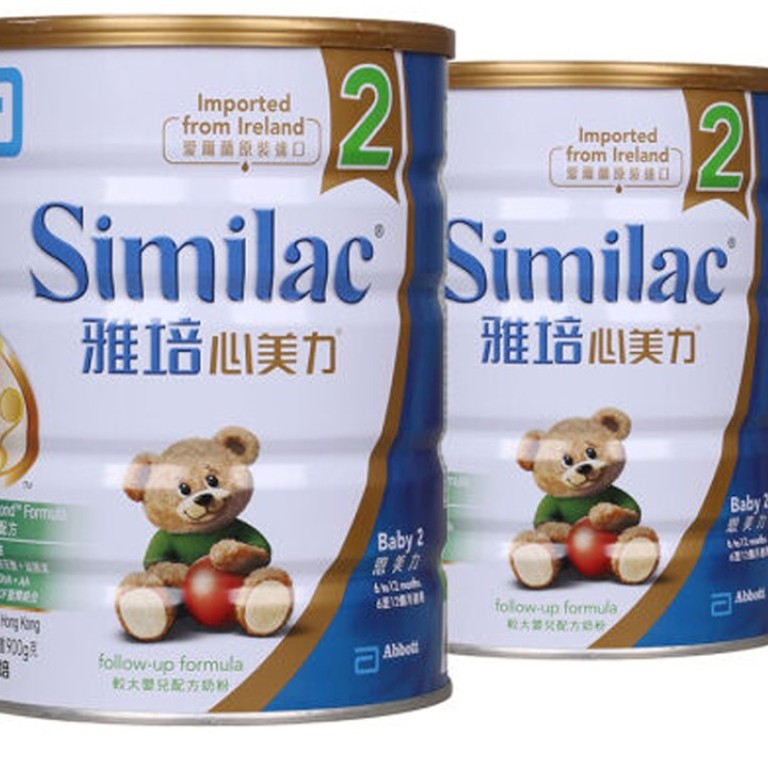
Abbott baby milk powder pulled from shelves in Hong Kong
Powder inside tins of Similac Stage 2 found to contain 66 per cent less niacin than claimed on the label
A batch of baby milk powder was pulled from Hong Kong shelves on Friday, after the city’s food safety authorities found 66 per cent less niacin in it than stated on the label.
The formula, made by Abbott, had only been sold in Hong Kong.
The affected product is Similac Stage 2 in 400g tins, made in Ireland and best before March 11 next year. The formula is for babies aged between six months and one year.
Man who drank colleague’s breast milk given probation
The Centre for Food Safety announced that a sample of the product had been found to contain 1.3 milligrams of niacin per 100g, 66 per cent less than the 3.8mg/100g declared on its nutrition label.
Niacin is one of the essential nutrients for all humans.
“The [centre] has informed the vendor concerned ... and the vendor has stopped sale and removed from shelves the affected batch of the product,” a centre spokesman said. “The [centre] is tracing the distribution of the affected product.”
The vendor has stopped sale and removed from shelves the affected batch of the product
A spokeswoman for United States-based Abbott confirmed it had decided to remove the “single batch” from shelves. She said the batch was only sold in Hong Kong.
“We stand by the quality and safety of our products and parents can continue to use our products with full confidence,” she said. “No other Abbott products, other than this single batch listed here which was sold only in Hong Kong, are affected.”
Neither the centre nor Abbott commented on how many tins, or how many Hong Kong distributors, were affected.
Under the Public Health and Municipal Services Ordinance, anyone who falsely describes food, or misleads people as to its quality or ingredients, is guilty of an offence and can face a maximum fine of HK$50,000 and six months in jail.

